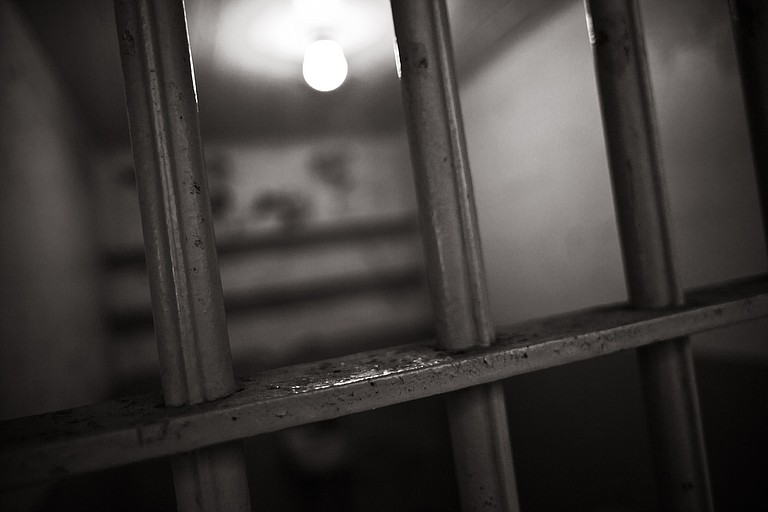The Mississippi State Penitentiary in Parchman is the state’s biggest and most costly penitentiary. Courtesy Neil Conway
Wednesday, May 8, 2013
Starting in July, the Mississippi Department of Corrections will have four fewer community work centers, which provide inmate labor to local governments.
The centers affected include those in Bolivar County, Yazoo County, Jefferson County and George County.
Chris Epps, MDOC's commissioner for the past 10 years, cited declining numbers of non-violent offenders who would be eligible for community work-center housing coupled with a multi-million-dollar budget deficit as reasons for the closures, which will save the agency $2.3 million.
"Tough times make you make tough decisions," he told MDOC staff members in April. The prison department's budget deficit ballooned to $29.5 million before the Legislature cut it down to $6 million during the recent legislative session. Gov. Phil Bryant wanted to send more money to prisons, but the Legislature declined to do so, instead providing MDOC with level funding for fiscal year 2014.
But why is MDOC so broke? Epps has received high praise for the efficiencies he has implemented at the department over the years that have saved taxpayers millions. Meanwhile, MDOC is about 2000 under capacity with an inmate population in January 12,533 but space for 14,479.
Epps, who was preparing for Mississippi's first execution of the year on May 7, was unavailable for an interview, but a spokesperson referred the Jackson Free Press to a January 2013 press release that points out Mississippi's second-highest in the nation incarceration rate of 650 per 100,000 citizens and the state's against-the grain-trend of growing inmate population in recent years.
Where nationally, the prison population decreased about one percent from 2011 to 2012, the number of individuals incarcerated in Mississippi grew by more than 1,000 people between 2010 and 2012, from 20,925 to 22,023.
Even taking the increase into account, at an average cost of locking someone up hovering around $41.51 per inmate--which MDOC touts as below the national average of $65.41 per day--the additional inmates would cost $15.1 million, half the deficit amount.
As Mississippi prepared for the planned execution of William Jerome Manning on May 7, civil-rights activists cited the rising cost of incarceration as a reason to enact prison reform, particularly with respect to death penalty cases. The costs of executions vary greatly from state to state. In California, a 2011 study found that the state spent an average of $308 million on each of the 13 executions carried out since 1978, $4 billion total. The Tennessee State Comptroller analyzed the costs of capital cases in 2004 that concluded capital trials cost taxpayers 48 percent more than life without the possibility of parole.
In 2012, Mississippi tied with Arizona and Oklahoma for second-most executions carried out in the United States, with six in each state. Texas led the nation with 15 executions in 2012. Wayne McDaniels, president of the Jackson branch of the National Association for the Advancement of Colored People, said Mississippi should look to solutions other than the death penalty to address crime.
"Instead of spending millions of dollars on costly executions, our state should invest in public education and prevention programs that deter individuals from criminal activities," McDaniels said.

Comments
wataworld 10 years, 11 months ago
talk is cheap, action speaks louder than words. WHAT happened to upgrading the custody level grading, One that no one will share with people that would like to know how it works, supposedly that was going to help keep some guys off C CUSTODY, which cost more to run. JUST LIKE WCCF, mostly CCUSTODY, closed down DCF because it was mostly B. MINOR violations can get you on C, and then its almost impossible to get off, you can't get real visits when on C and depression sets in for family and inmate alike, Can't order from commissary even though products are so expensive, at least stamps are real time price. I have not had a letter from someone in a long long time due to not being able to order stamps. I didn't know for almost 4 days if he was dead or alive after the last riot at WCCF. still no real details on that, wonder who pays off the family and how much to keep quiet??? CCA or MDOC??? IS it true that CCA is not going to renew the contract for WCCF this year. COULD BE THE BEST THING, TOO BAD private prisons could have been a good thing if they did what they are contracted to do, where are the programs the tax payers pay for. MONEY going in someones pocket. 15.00 for a small thing of coffee on the twice yearly package that family are allowed to purchase? I know these guys are not on vacation, but some ARE WORTH SAVING, no matter what some nay sayers will say. have a great day.
ryannave 10 years, 11 months ago
MDOC Communications Director Grace Fisher emailed after the story and provided the following information:
MDOC’s deficit is not only from inmate growth, but also two federal court orders and critical capital improvement needs. (The info is in the January news release you cite.)
The inmate custody population in January was 22,346, and the total inmate population was 26,135, according to our fact sheet posted on our web site.
In response to a question from you, you were told the total cost of an execution is $11,000. Therefore, how are the executions breaking the agency’s bank, or how is the state spending millions of dollars on executions?
Six are the most executions the agency has had to do in one year (2012) – that’s 6 X $11,000. MDOC’s 2013 fiscal budget, minus the deficit request, was $339,130,424. (The number is in the January news release.)
Sign in to comment
Or login with:
OpenID